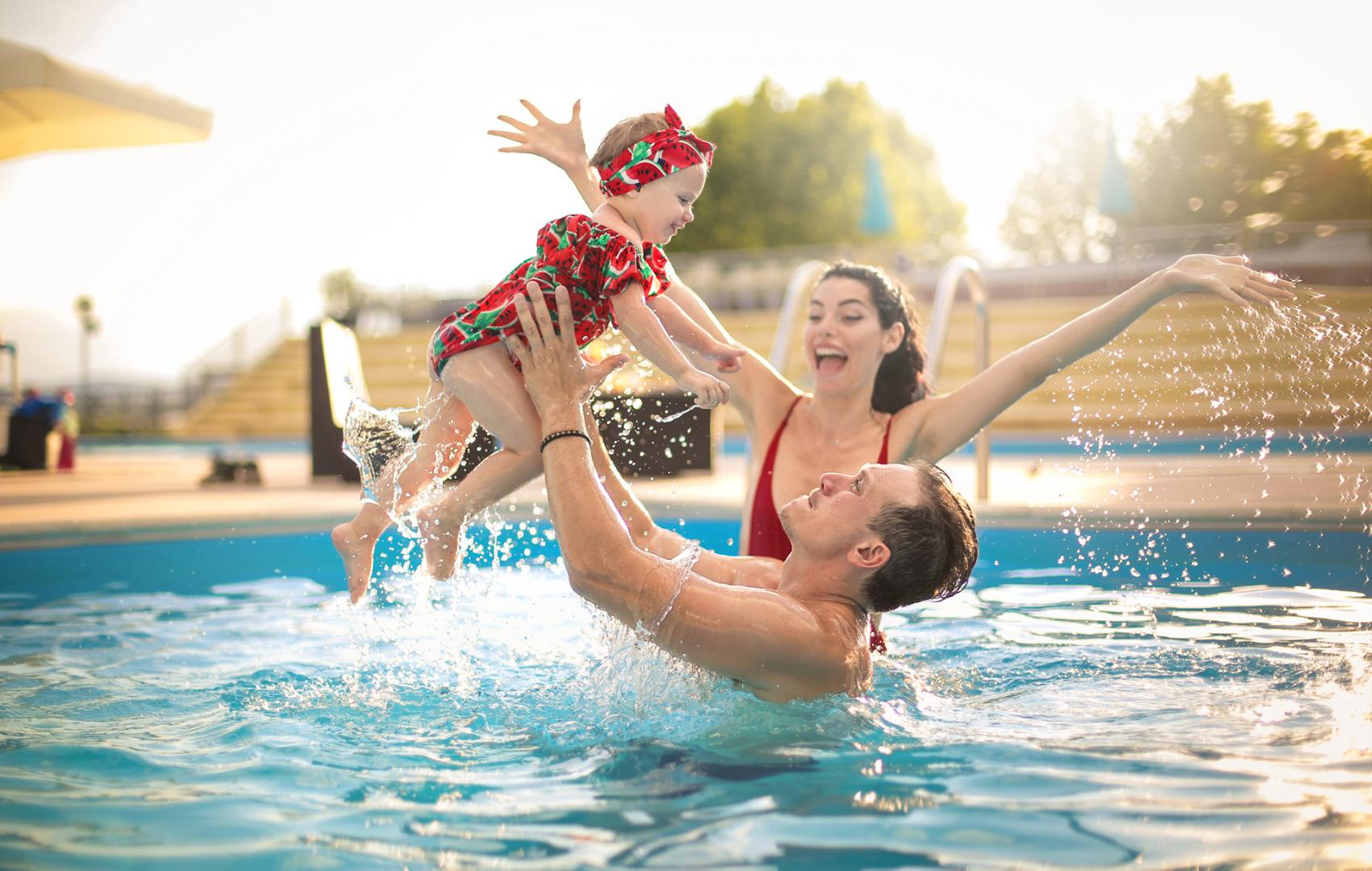
Healthy Swimming
Recreational Water Illnesses (RWIs) are caused by germs spread by swallowing, breathing in mists or aerosols of, or having contact with, contaminated water in swimming pools, hot tubs, water parks, water play areas, fountains, lakes, river, or oceans. They can also be caused by chemicals in the water or chemicals that evaporate from the water and cause indoor air quality problems. RWIs encompass a wide variety of infections including gastrointestinal, skin, ear, respiratory, eye, and wound infections. The public's awarenss of RWIs and healthy swimming behaviors are important tools in helping to stop the transmission of diseases.
Healthy swimming behaviors include the following:
- Refrain from swimming when you have diarrhea. You can spread germs in the water and make other people sick.
- Avoid swallowing pool or lake water or even getting it in your mouth.
- Practice good hygiene. Shower before swimming and wash your hands after using the toilet or changing diapers.
- Take children on frequent bathroom breaks and change diapers often. Have swim diapers available.
- Change diapers in a bathroom and not poolside, and thoroughly clean the diaper changing area.
- Swimming in a well-maintained swimming pool will reduce your risk of developing a RWI, as many germs are killed by sanitizers, such as chlorine. The water should appear crystal clear and the sanitizer level kept at no less than 2ppm. Skimmer baskets and gutters should also be clean and free of debris.
- A well-chlorinated pool will have NO odor. A strong chemical smell indicates a maintenance problem.
- Avoid swimming in a pool that has cloudy or off-colored water. It is especially important not to swim in a pool when you cannot see the bottom main drain.
In addition to illnesses, injuries, such as drowning, can occur in and around the water. According to the CDC, drowning is the second leading cause of unintentional injury and death among children 14 years old and younger. From 2004-2008, 56 children less than five years of age in Oklahoma drowned. More than half of these drownings occurred in swimming pools. Simple safety measures can be taken to prevent injuries and drownings.
The following precautions should be taken to prevent drowning:
- Keep an eye on children at all times, as children can drown in seconds and in silence.
- Children should wear well-fitting life jackets or personal flotation devices. Air-filled swimming aids, such as "water wings," should never be used in place of safety devices.
- Children should only swim in designated and well-supervised areas.
- Install four-sided fencing around residential pools. Completely surround the pool with fencing that separates the house and play area from the pool.
- Properly fitting U.S. Coast Guard-approved life jackets should be worn by all individuals when boating or participating in boating activities, such as water-skiing, regardless of swimming ability or experience, size of boat, or distance to be traveled.
Splash Pads
Effective November 1, 2010, the Oklahoma state statute changed excluding splash pads from licensure. Therefore, THD will no longer inspect or license splash pads. Swallowing water in interactive fountains, splash pads, and spray parks might make you sick. View an infographic for tips on staying safe at splash pads and interactive water fountains.
Additional Resources:
Pool User Tips
Hot Tub User Tips
Inflatable & Plastic Pools Facts
Pool & Spa Test Strip Instructions
Make a Health Splash: Staying Safe at Splash Pads and Spray Parks
